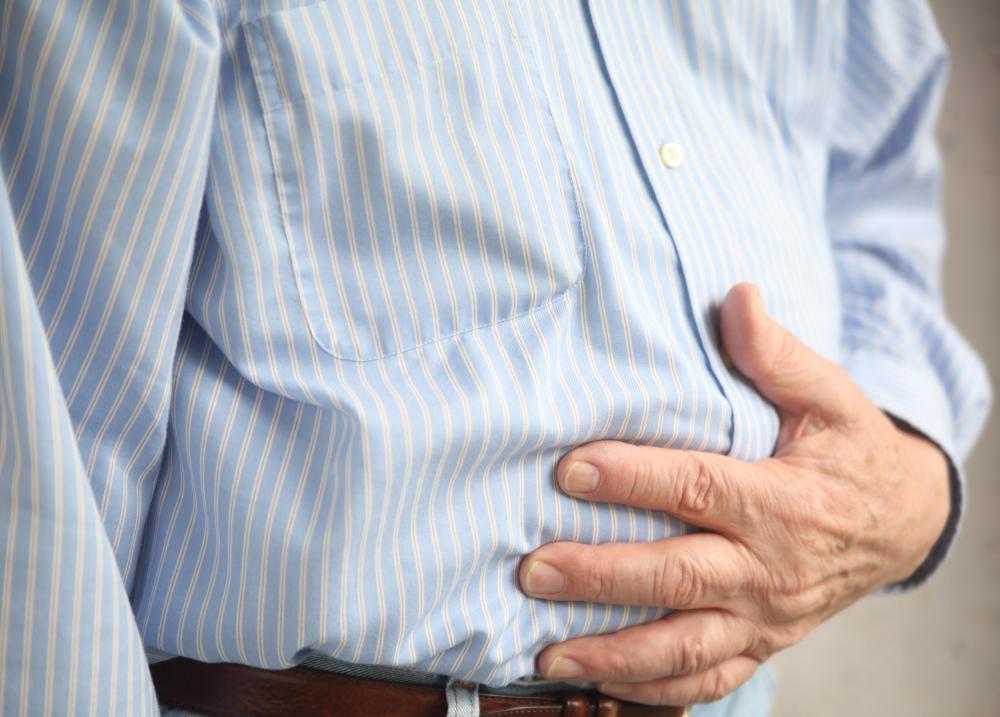At TheHealthBoard, we're committed to delivering accurate, trustworthy information. Our expert-authored content is rigorously fact-checked and sourced from credible authorities. Discover how we uphold the highest standards in providing you with reliable knowledge.
What Causes Polyps in the Duodenum?
Most polyps found at the beginning of the small intestine, also called the duodenum, remain symptomless until they grow large enough in size to cause bleeding, stomach pain, or vomiting. The majority of duodenum polyps are discovered during unrelated medical examinations. While polyps in the duodenum are usually benign, some become malignant or cancerous.
Biopsies on surgically removed polyps determine whether the patient has cancer. Once a patient is found to have polyps in the duodenum, regular check-ups are recommended to monitor the possibility of new growths. The physician will determine the frequency of testing for each patient. Several possible causes exist for polyps to develop in the duodenum.

Gastritis is believed to trigger stomach polyp growth in some patients. The inflammation of the stomach lining experienced with gastritis can be caused by viral or bacterial infections. Overuse of specific pain relievers, drinking too much alcohol, or injuries to the abdomen can also cause gastritis.
Vitamin B-12 deficiency anemia is believed to be a precursor for duodenum polyp growth. This anemia creates a reduction of red blood cells. One cause for this anemia is insufficient amounts of vitamins C and B-12 in the diet. In addition, a body's inability to properly absorb vitamins can also cause the anemia.

Age is a factor when it comes to polyps developing in the duodenum. The majority of patients found to have such polyps are at least 60 years old. One exception to this is found in Familial Adenomatous Polyposis (FAP). In FAP, which runs in families, young adults are also at risk for developing several hundred to several thousand polyps in their intestines. Patients with this disorder have duodenum polyp development in 80 percent of diagnosed FAP cases.
Virtually all patients with FAP will develop either stomach or colon cancer by the age of 40. Preventative treatment for FAP includes surgical removal of the colon and rectum. This surgery reduces the possibility of polyps in the duodenum.

When polyps in the duodenum are discovered, a decision is made about treatment. In many cases, they are removed and biopsied to check for malignancies. In some cases, the medical team decides to take a wait-and-watch approach. Regular check-ups are performed, and if more grow or existing polyps become larger, a biopsy is performed. Most polyps are removed during the biopsy, and no further treatment is needed.
AS FEATURED ON:
AS FEATURED ON:


















Discuss this Article
Post your comments